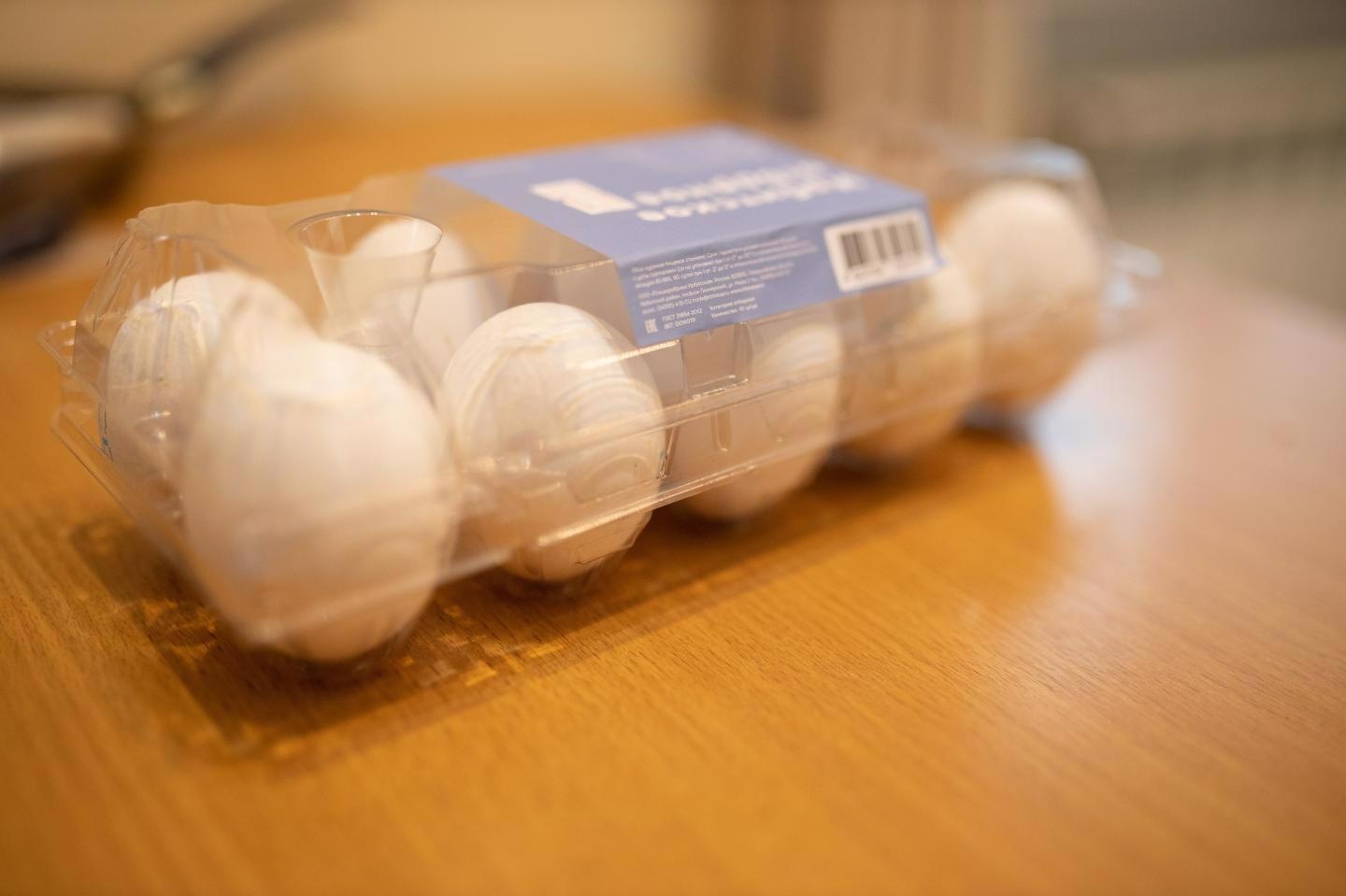Apr 5 2021
Scientists from Russia have designed a safe and cheap packaged egg surface disinfection technology. This technology helps destroy bacteria, such as salmonella, present on eggshells.
 The cost of irradiation of plastic packaging for 10 eggs was 1.2 eurocents. Image Credit: UrFU / Ilya Safarov.
The cost of irradiation of plastic packaging for 10 eggs was 1.2 eurocents. Image Credit: UrFU / Ilya Safarov.
Moreover, it enables the rearing of broiler chickens with powerful immunity to viral diseases. Packed eggs are disinfected with a 50-ns (one-billionth of 1 second) electron beam in plastic containers. The technology has been explained in a paper published in the Food and Bioproducts Processing journal.
Disinfection of the packed eggs protects eggs from subsequent contamination during storage. We found out that 5 kGy is enough for disinfection. Such dose allows to disinfect container and eggshells but does not affect the physical properties of the protein, yolk, and shell, or their composition. The size of the eggs does not matter.
Sergey Sokovnin, Professor, Ural Branch of Russian Academy of Science and Ural Federal University
The quality of meat and the mass of chicks are not affected by the disinfection. Hence, if 63% of chickens hatch from ordinary eggs, then 64% hatch from processed ones. However, the difference is that healthy chickens hatch from the disinfected eggs.
86% of chickens from untreated eggs show signs of chronic inflammation. In chickens from irradiated eggs, this figure reached only 4%. At the same time, chickens from the second group had an increased immunity to Newcastle disease. This is a bird's viral disease. It means that chickens from sterilized eggs will be less sick. And it will be possible to significantly reduce the dose of antibiotics when they are growing.
Sergey Sokovnin, Professor, Ural Branch of Russian Academy of Science and Ural Federal University
Moreover, the technology helps save time for industrial manufacturers. It takes less than 6 hours to hatch chickens from clean eggs. Rather than the usual 22 to 24 hours, chickens emerge in 16 to 18 hours. This is highly crucial as it brings down production costs.
The accelerator capacity is 108 million eggs per year, which is enough for a large poultry farm. It permits irradiation up to 40 eggs per second. The cost of irradiation of plastic packaging for 10 eggs was 1.2 Eurocents. If one technological line will operate in one shift of 250 working days a year, then the investment will be returned in five years. The main costs are staff salaries, overhead costs, equipment costs.
Sergey Sokovnin, Professor, Ural Branch of Russian Academy of Science and Ural Federal University
Moreover, there are no major technical issues with the execution of the technology. The accelerator’s small size makes it simple to combine into present lines for control and packaging of eggs in poultry farms. The scientists feel that the technology can also be utilized to disinfect the surface of eggs of other birds, as well as products with peels or other natural packaging (oranges, bananas, and seeds).
This study was financially supported by the Russian Scientific Foundation (project No. 16-16-04038). The research team includes scientists from the Ural Federal University, the Institute of Electrophysics of the Ural Branch of the Russian Academy of Sciences, the Ural State Agrarian University, and the Ural Research Veterinary Institute.
Journal Reference:
Sokovnin, S (2021) An electron beam technology of surface disinfection of the packed egg. Food and Bioproducts Processing. doi.org/10.1016/j.fbp.2021.03.009.